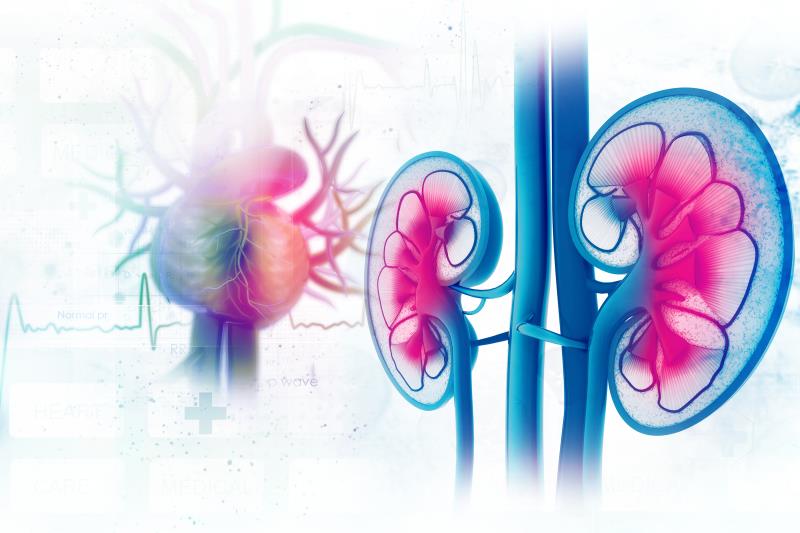
Decompensated cirrhosis patients with acute kidney injury (AKI) tend to have factor XIII deficiency, a recent study suggests.
Researchers performed a prospective investigation of 43 hospitalized decompensated cirrhosis patients with (n=22; median age, 55 years; 50 percent male) or without (n=21; median age, 49 years; 52 percent male) AKI. Peripheral blood samples were collected and subjected to standard assays to measure factor XIII antigen concentrations, coagulation factor levels and thrombin generation, among other factors.
Compared to the non-AKI participants, factor XIII levels were significantly lower in the AKI patients (38 percent vs 60 percent; p=0.0002). Other coagulation factors, such as platelets (89,000/µL vs 87,000/µL; p=0.827) and fibrinogen (156 vs 151 mg/dL; p=0.743) were statistically comparable.
Similarly, the ratio between endogenous thrombin potential (ETP) without-to-with thrombomodulin was comparable between AKI and non-AKI patients (0.92 vs 0.93; p=0.183). However, comparing cirrhotic patients to healthy controls showed significantly reduced ETP ratio in the latter group (0.56; p=0.0001).
Differences in other thrombin generation assay parameters, such as total peak thrombin production and velocity of production, tended to be lower in participants with vs without AKI, but failed to reach statistical significance.
“The results support the paradigm of a rebalanced coagulation system in patients with cirrhosis that is vulnerable to exogenous disruption such as AKI,” said researchers. “Although this study does not prove causality, these results suggest that changes in factor XIII are a significant consideration in decompensated cirrhosis when associated with AKI.”